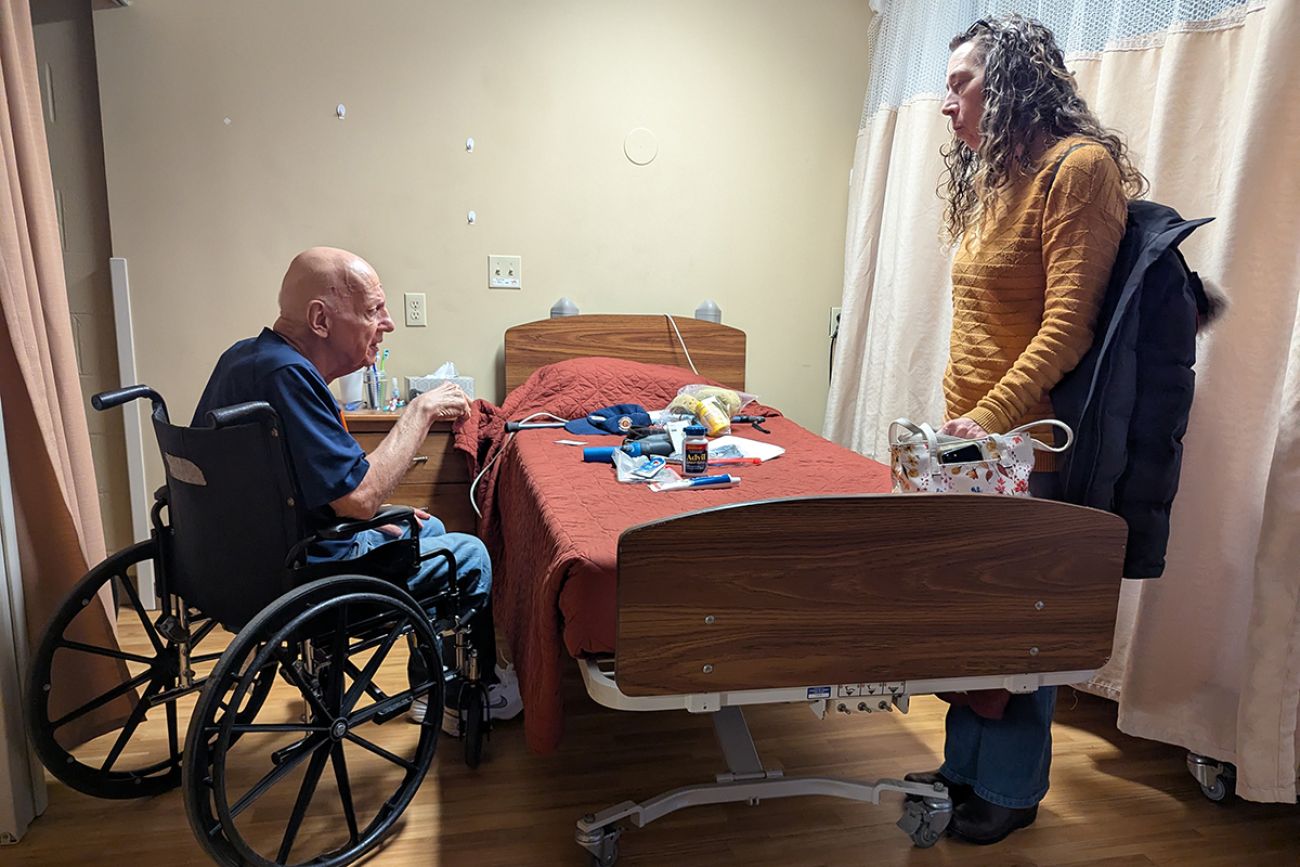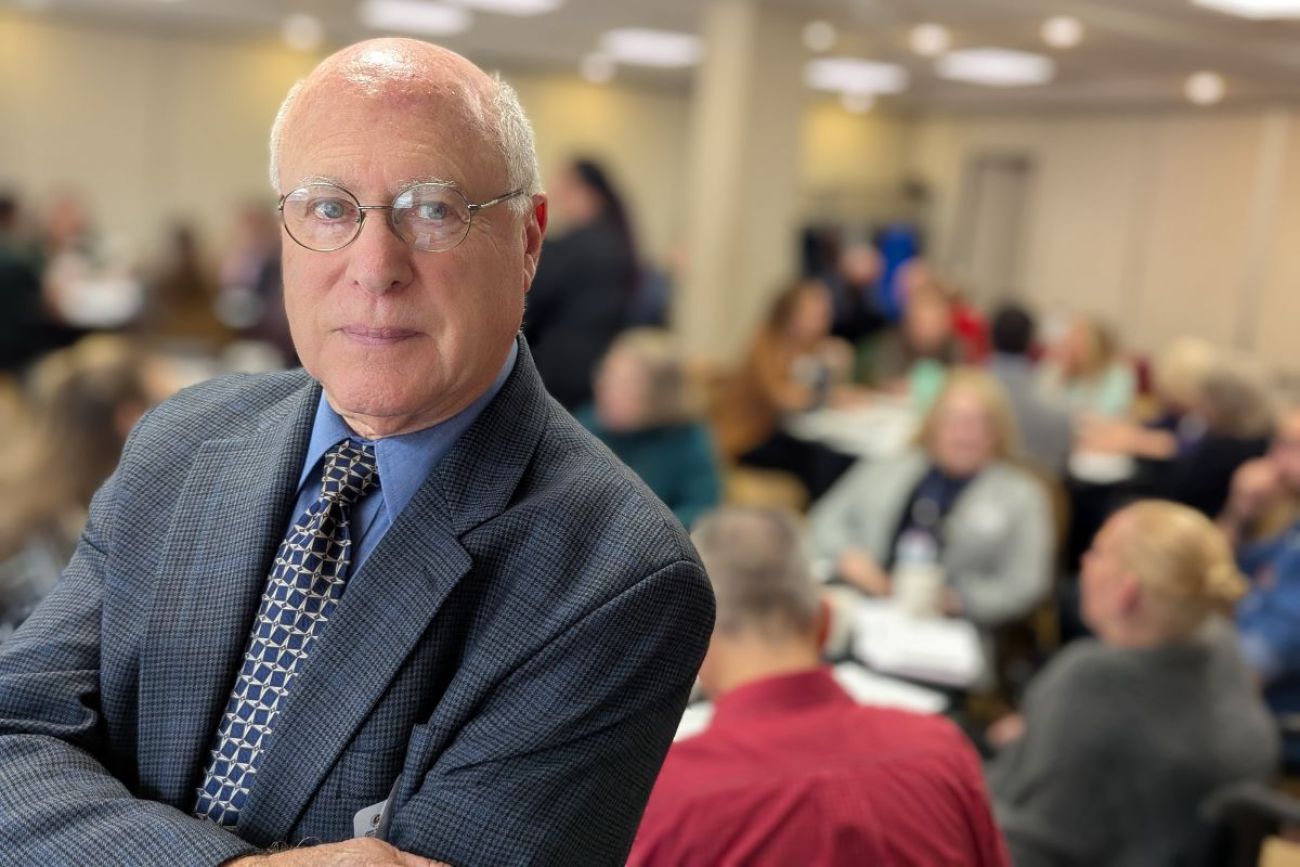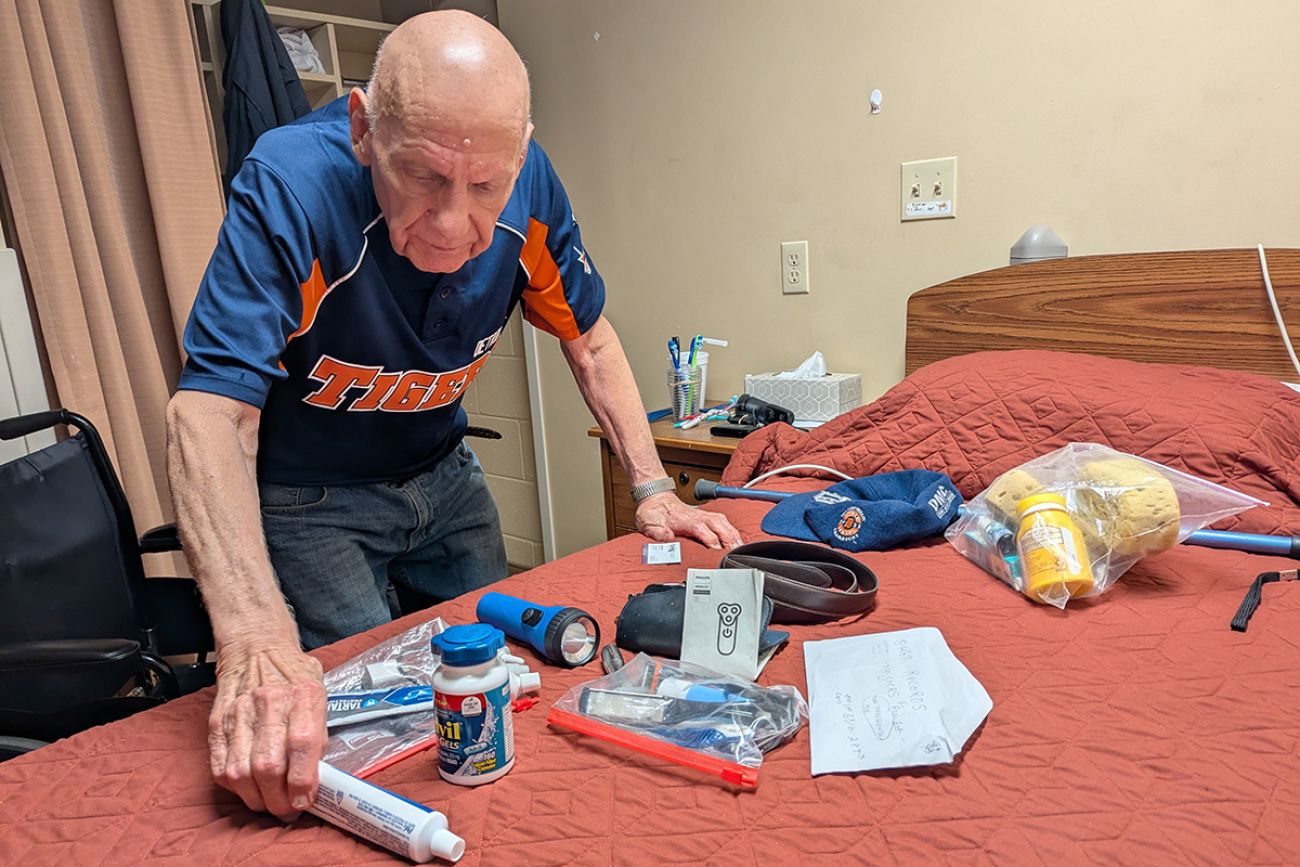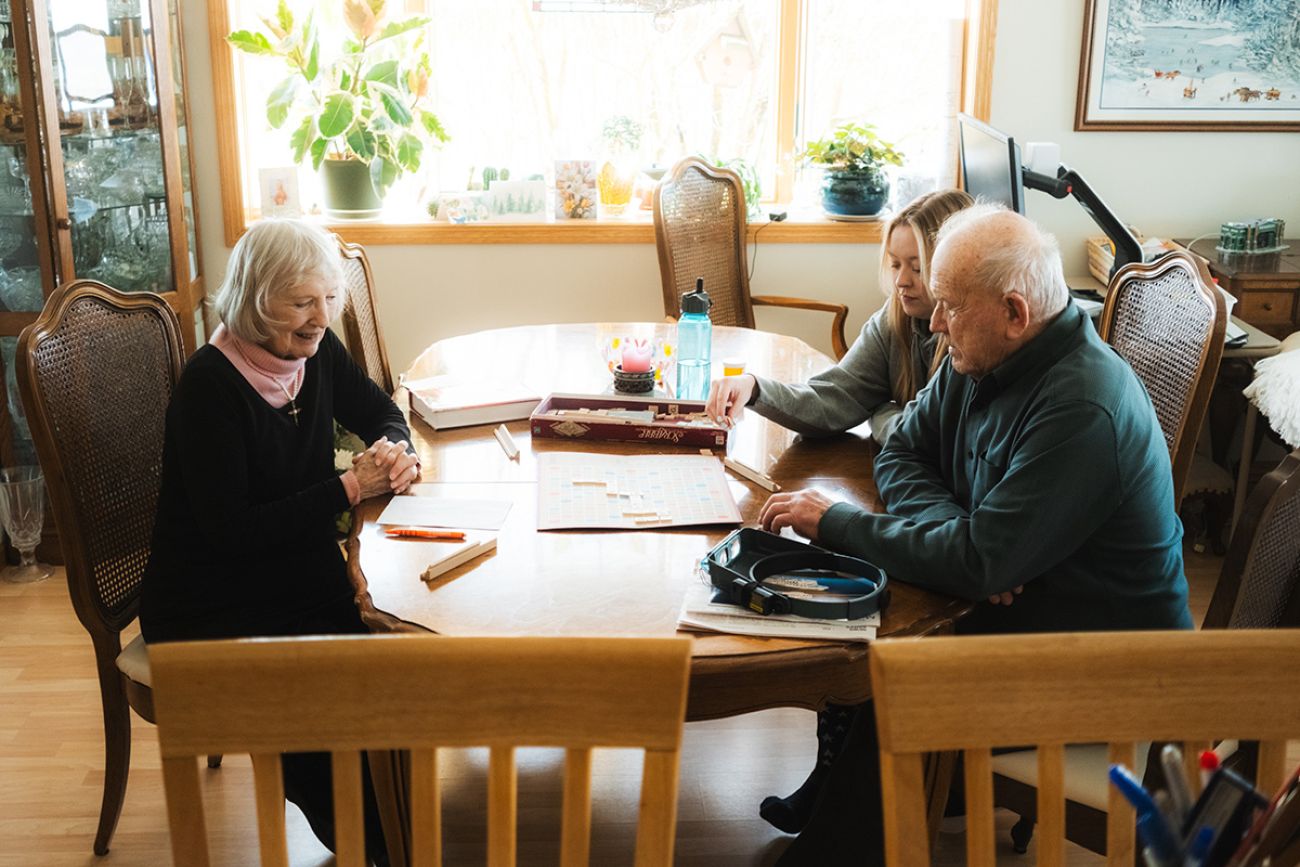Crush of retirees a crisis in Michigan. State unprepared to meet their needs

- Michigan, facing a senior care crisis, spends billions on inadequate services
- The problems include lack of inspection on housing, inadequate transportation and policies that push residents into nursing homes
- The crisis will worsen as the last wave of Baby Boomers retire and life expectancies increase
For months, Howard Gregor survived on pizza and TV dinners occasionally dropped off by a neighbor, trapped in a second-floor apartment that had become a cell.
So hungry at times, the 82-year-old could do little more than pray for a knock at his door.
Gregor’s barrier to the outside world was no more than a dozen steps, but he couldn’t navigate them to the ground floor because his neuropathy would shoot pains through his feet and legs if he tried.
So on a recent cold morning, Gregor gathered up a few toiletries in a plastic bag and moved to the nearby Church of Christ Care Center nursing home. It’s clean and offers three meals a day, but he’ll share a small, single room with three other men.
With basic services, he could have remained in his home. Instead, he left almost everything behind.
“It’s sad,” he said, sorting through a few toiletries he’d brought with him in a plastic bag.
Taxpayers are shouldering much of the bill. Michigan’s policies force many seniors into nursing homes that cost an average of $350 a day per Medicaid resident, which is about 2 ½ times as much as in-home care that would have provided regular visits and meals to seniors like Gregor.
It’s just one example of a senior-care crisis in Michigan that is worsening by the day. The state spends billions of dollars a year for a “dysfunctional assembly of programs where frustration, failure, and poor outcomes are far too common,” according to a 2022 report by the Michigan Elder Justice Initiative.
“This isn’t the system we need,” said Jennifer Wilczek, a social worker with Macomb County’s Office of Senior Services who helped move Gregor out of his home.
“It’s not working.”
Michigan spends $4.4 billion in state and federal funds for seniors, providing everything from home-delivered meals to round-the-clock nursing care. That’s less than most other states, services vary by community, and an estimated 32,000 older Michiganders live in facilities that are loosely regulated and often unlicensed.
Michigan ranks 36th among 48 states for spending Medicaid dollars in long-term care. Overall, Michigan spends the equivalent of $2,378 per senior, according to a Bridge Michigan analysis.
We want to hear from you
Bridge Michigan is writing about issues surrounding older residents in a state aging faster than most others.
What are the challenges ahead for you as you age or help care for an aging loved one? What are the best programs out there? How has your life changed as you move from career to retirement or family home to assisted living? Or maybe you’ve got an idea to help bridge the gaps in housing, transportation, health care and other services for older Michiganders.
Drop us a line at rerb@bridgemi.com.
That’s 39% less than the national rate.
To make Michigan even average among other states, taxpayers would need to spend an additional $2.7 billion annually, according to a Bridge Michigan analysis.
And the money it does spend is prioritized to placing residents in nursing homes, rather than helping them stay in homes with services such as health aides.
Other states have taken steps to improve elderly care and restrain burgeoning costs, but advocates say Michigan legislators have failed to make the state’s aging population a priority.
Over three months, Bridge spoke to dozens of experts, advocates and local and state officials about Michigan’s senior care crisis. Almost all warned the system is teetering under the weight of a fast-aging population.
Bridge also heard sobering stories of seniors whose golden years have been filled with bureaucratic red tape, missed medical appointments caused by inadequate transportation support and six-month delays for services as simple as Meals on Wheels.
And every day, an average of 380 more Michiganders turn 65.

“At the same time we have this constriction in services, we’ve got this rapidly aging population — that’s a really bad intersection,” said Dr. Richard Douglass, a retired gerontologist and epidemiologist who now advocates for better transportation services in rural areas.
“What we have is chaos.”
When asked for comment by Bridge, Gov. Gretchen Whitmer’s staff responded with a list of actions, including an expansion of Medicaid during the pandemic and her 2023 repeal of the state’s income tax on pensions.
“Governor Whitmer is focused on getting things done for older Michiganders by consistently expanding senior supports and care services,” Whitmer spokesperson Shreya Bandyopadhyay wrote.
Baby Boom to grandma boom
Michigan's population is aging faster than most states, with 1.9 million residents — nearly 1 in 5 — already 65 or older.
While the state’s overall population has flatlined over the past decade, the number of Michiganders 65 or older increased by 500,000 — the equivalent of, each year, adding a city the size of East Lansing composed only of seniors.
In 23 of Michigan's 83 counties, the median age of residents is 50 or older — a higher percentage than any state with at least 20 counties.
In 10 counties — all in northern Michigan or the Upper Peninsula — 1 in 3 residents are age 65 or older. In two counties, Alcona and Ontonagon, it’s nearly 40%.
Michigan’s gray wave has far-reaching implications, including a dwindling workforce and ballooning taxpayer costs for care that already soaks up more than 5% of the state’s general fund budget, a total of $1.6 billion. Michigan spends another $2.8 billion in federal funds on seniors.
That has left Michigan seniors struggling to find services that will keep them as independent as possible, Bridge found.
For example:
- Michiganders who want care in their homes must share in a limited pot of Medicaid funds to pay for those services. Even among the about 12,000 Michigan seniors who are enrolled in the state’s largest in-home care program, Mi Choice, many can’t find aides willing to work for an average pay of $16 an hour.
- Across the state, local senior services draw from uneven funding streams of general budgets, grants and local taxes. Michigan relies on local communities to enact senior taxes that vary widely across the state. Otsego County, where Gaylord is located, raises $227 annually per resident age 65 and older, while the Upper Peninsula’s Iron County raises $38 per senior. Twelve counties have no countywide tax at all, including Macomb, where Gregor lives, or Wayne and Oakland counties.
- Michigan spends a greater share of senior care Medicaid funds on the most expensive service — nursing homes — than most states. It’s 60% in Michigan, compared to 53% nationwide.
- Almost half (49%) of Michigan’s 482 assisted living-type of facilities are unlicensed and unregulated, with the state not tracking the level or quality of services provided. The Michigan Assisted Living Association estimates that about 75,000 older Michiganders live in some kind of assisted living, including 32,000 that reside in unlicensed facilities.
- Michigan is near the bottom nationwide, 45th, in funding transportation services — trips to doctors, pharmacies and the like that can help seniors avoid nursing homes, according to a 2023 analysis by AARP.
That has created a system in Michigan that has as many gaps as services, said Pat Rencher, a member of the state’s Advisory Council on Aging.

“People just don’t know who to call,” said Rencher, who is also publisher of Urban Aging News, a metro Detroit paper and resource guide about senior issues.
“It boils down to the same old reason: No money and no single source to put it all together.”
Related:
- Whitmer proposes more money for Michigan's aging crisis. Is it enough?
- Experts: Michigan lawmakers should make 6 fixes to improve senior care
- Where to find help for Michigan seniors. A guide for navigating the maze
- How to plan for aging in Michigan or take care of others: What to know
- Unlocking the secrets of Michigan’s ‘superagers,’ who defy golden years
- Watch Bridge Lunch Break on the challenges of aging in Michigan
For decades, demographers have warned Michigan leaders that the state’s aging population would lead to a service crunch, but not enough has been done, said Tom Jankowski, interim director at the Institute of Gerontology at Wayne State University, who with colleagues conducts needs assessments for local governments and advocacy organizations.
“It’s frustrating. We tend not to prepare for large social changes until they become a problem,” Jankowski said.
“I guess the question comes down to ‘What kind of society do we want?’”

Isolation, fear and confusion
The struggles of Gregor, the 82-year-old Macomb resident, illustrate the challenges Michigan seniors face trying to navigate a complex, disjointed system of services.

Bridge visited Gregor just hours after he moved from his apartment to the nursing home. His tuna salad sandwich finished off in the cafeteria, Gregor was wheeled to the room that would be his new home. It will be an expensive way for taxpayers to house him — one that social worker Wilczek said could have easily been avoided with a bit of help.
Michigan officials acknowledge challenges, but say the state has dozens of local Area Agencies on Aging and other groups that provide services. The state next month will launch a statewide help number to make it easier to find services.
“It's a rich network, but it takes a little navigating to figure out where you fit best,” said Scott Wamsley, director of the state’s Bureau of Aging, Community Living and Supports.
Gregor’s problems began about eight months ago when his roommate died and his connections to the outside world withered.
At his former home, Gregor would sit at the dining table, watching passersby.
“I’d just sit and watch and couldn’t do anything about it,” he said.
Ultimately, it took about four months to work through the bureaucracy and find a place willing to offer placement for a man on Medicaid.
Farther north outside of Tawas, Clarence Jordan is still working at 72, stocking produce at a Walmart for $14 an hour. He has a pension from 34 years as a school custodian, and both he and his wife receive Social Security, but that isn’t enough to cover bills.
To save heating costs, they burn wood from trees Clarence cuts on their property. About three years ago, he needed 85 stitches after a chainsaw kicked back into his face while cutting wood.
“At our age, you start wondering about tomorrow — the ‘what ifs,’” said wife, Susan, a retired merchandiser.
Reforms elsewhere
Whitmer has increased funding for in–home senior services, but the system remains unprepared for the tsunami of seniors who are likely to need assistance in the next 10 years, said state Rep Jeff Irwin, D-Ann Arbor.
Reforming a complicated, expensive system has never risen to be a priority in Michigan as it has in some other states.
Washington, for example, has had a statewide long-term care insurance tax since 2019 that is popular among residents. A ballot proposal to allow businesses and individuals to opt out of the program was defeated by 11 percentage points in 2024.
In recent years, California used federal funds to dramatically boost services that allow its seniors to age in place. Its spending plan includes 26 initiatives totaling about $4.7 billion in workforce, services, infrastructure and technology.



But in Michigan, change doesn’t come easy for such a large and complicated system created over decades of policymaking, said Irwin, who has found it difficult to make significant changes, even when it could save the state millions of dollars.
Home care “is the least expensive way to (care for seniors),” said Pam Niebrzydowski, a member of the Michigan Senior Advocates Council, which lobbies legislators on behalf of the Area Agencies on Aging Association of Michigan.
“But as money-driven as the Legislature can be, we feel like we’re hitting our heads against a wall trying to convince them (of the value).”
“Sometimes, the water gets too muddied.”
State funding is a year-to-year fight against competing priorities in Lansing, Niebrzydowski said.
For example, “we asked (last state budget cycle) for $2 million (increase) for home-delivered meals for the whole state, and we got $800,000,” she said.
At the $8.40 per meal cost at the Tri-County Office On Aging in Lansing, that increase paid for just 262 additional participants statewide.
Beyond nutritional support, Meals on Wheels serves as a critical gateway for additional services because it “is the first time” seniors get into the system to access help, Niebrzydowski said.
Worry and hope
A common refrain among seniors who spoke to Bridge is worry that a lack of services will force them to live out their lives in a nursing home — and a feeling they are powerless to avoid it.
One of them is Dave McNeill, 77, who lives in Christmas near Munising.
“I’d give anything to stay in my home,” he told Bridge.
A widower and former social worker, he no longer drives.
After back and heart surgeries, he can’t get to his basement or the second floor of the home where he and wife, a nurse, raised their children, all who now live more than six hours away. McNeill can’t afford to move, either. Real estate is snapped up by residents who can pay top dollar to turn housing into rental property for the thousands who each year flock to the nearby Pictured Rocks National Lakeshore
A small mercy, McNeil can order many groceries from Amazon — but not all. After starting each day for years with two boiled eggs and a slice of whole-grain toast, he told Bridge he’s gone four months without eggs.
The Alger County Commission on Aging covers the cost for a home aide for two hours a week. The aide takes out the trash, cleans and runs the occasional errand.
It’s not clear what McNeill will do when two hours of assistance isn’t enough.
“Right now, I have my mental faculties,” he said. “When I turn from my kitchen sink, I remember to look down and make sure my dog isn't there. I’m very conscious of my steps. I don’t want any falls,” he said.
“I hope for the best right now,” he said.
Bridge reporter Mike Wilkinson contributed
See what new members are saying about why they donated to Bridge Michigan:
- “In order for this information to be accurate and unbiased it must be underwritten by its readers, not by special interests.” - Larry S.
- “Not many other media sources report on the topics Bridge does.” - Susan B.
- “Your journalism is outstanding and rare these days.” - Mark S.
If you want to ensure the future of nonpartisan, nonprofit Michigan journalism, please become a member today. You, too, will be asked why you donated and maybe we'll feature your quote next time!








